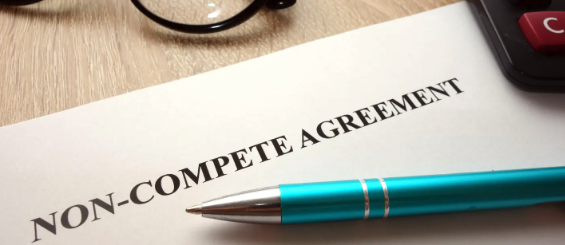If you own or run a business, or sell services or products yet to be delivered, then you are very familiar with the stress of closing deals. You’ve called, emailed, pitched, and presented for weeks. You’ve got the client revved up and excited about the future, and you’d give anything to just book the deal right now.
Do you have the right contract for your transaction though? Do you care at this point as long as you get signatures and a check clears?
Maybe not, and that’s an unfortunately natural response we all might have when the reward is so close. We’re focused so intently on the end goal that getting signatures and negotiating “legal terms” becomes an obstacle instead of an asset.
It doesn’t have to be that way. In fact, many companies are able to fly through all negotiations, close more deals with better customers, and keep more of them happy. Why? They pay attention where others don’t: the contract itself.
Why does the contract often take a back seat?
If you’re not focused on your contract, you’re not alone. When we’re building relationships, we tend to trust whatever feels normal. Think back to when you were a kid: playing games didn’t involve writing any rules down. Let’s be honest, even though rules were sometimes written, nobody ever read them (Monopoly, anyone?). Somehow, though, everyone figured out how to play the game and usually had a good time. That was normal.
Even many years later, we’re all prone to assuming that our customers will figure out the game our business is trying to play. We assume that they’ll play along, and that we don’t need rules or that the services and products we’re providing are exactly what the client is expecting. The problem is that in business, everyone is ultimately playing their own game. Each party’s expectations necessarily differ.
“Standard” Form Contracts
Most people understand that businesses really do have competing interests. So, we do sign something. It’s often a template taken from an old business relationship. Or, it’s a “standard” form downloaded from the internet, used without much review.
If you’re convinced that one of these form templates is suitable for your business, I can’t say that you’re wrong. It may be; it may not be. The smartest companies have figured out something else though.
These companies know that creating and using a proper contract to fit the company’s business model is the tide that lifts all boats. Creating and using a proper contract 1) forces you to think through and plan your business model, 2) starts a vital conversation with your customers, and 3) reinforces trust with your customers.
If you recognize and seek out these benefits, then you’ll turn your contract from the last obstacle in the sales process to a valuable asset in closing the deal.
The Contract as a Hidden Asset
Thinking Through the Business Model
The process of drafting a proper contract forces you to define your business model. Your contract is nothing more than the rules to your game, but if you’ve never tried to write them down then your business may not be as defined as you thought. There may be intricacies of how to deliver, with what contingencies, and with what allocation of risks, that are specific to your product or service. Knowing all of this info allows you to better sell the entire package.
If you’re struggling with direction or have trouble focusing on a specific business model, drafting a contract with the right help will force you to think through the issues in a systematic fashion.
Even if the business model is defined, within each industry there are many subtle variations. A “standard” form contract is likely only “standard” in the general sense of the industry. It may not meet your requirements because your specific model may be slightly different.
For example, take the game of Monopoly. Some people play a version of Monopoly where if you land on “Free Parking,” you receive cash that was paid to the center of the board (usually the income tax collections, or fees based on community chest or chance cards). This version of the game is like your specific business model.
Unfortunately for those who play the game that way, if they try to assert the official Monopoly rules (like a “standard” form contract), they’ll look foolish. “Free Parking” has, according to the official rules, zero consequences to the game. Nobody collects any money.
If you go through the process of drafting a contract which matches your business model, there’s an excellent chance you would uncover differences between any “standard” contract and your actual business practices. Reconciling these ahead of time saves stress, time, and money.
Starting a Conversation with Your Customer
A contract that matches your specific business model catalyzes important discussions with your customers. The contract shares details that may not have been discussed during the sales cycle. The parties then get a chance to raise objections and discuss solutions ahead of time, before any issues become toxic.
This is great for business because it reduces the likelihood of a dispute. Too many disputes occur because of a lack of communication. If you draft the proper contract, the contract does some of the communication work for you.
You might wonder whether all the discussion would slow the sales cycle. It might, in a marginal way. But the benefits drastically outweigh any loss in speed. Being forced to talk about key issues ahead of time requires the entire organization to become better informed about the product or service. Armed with quicker access to more accurate information, a few things happen…
The marketing team improves communication. The sales team sets clearer customer expectations. The product team delivers against clearer objectives. Eventually, the sales cycle regains any speed lost, with a greater rate of success in snagging better customers.
Reinforcing Trust
When you put a proper contract in front of a customer, you reinforce the trust you’ve worked so hard to build in the relationship. It’s an open house for your business, and the contract is the staging. The customer sees how your business operates, and how each part is organized and purposeful. They continue to imagine themselves working with you, because the contract matches the carefully curated image you’ve worked so hard to sell.
Not only should your contract show that your business is thoughtful and prepared, it should look good too. The staging should be practical and realistic, but also elegant. Customers notice when the document is formatted properly, the edges align, and the numbering is consistent. You’re putting your best foot forward, and it makes the sale that much easier.
Though they’re often overlooked, contracts are valuable assets to your company. Don’t let yourself treat your contract as an obstacle to closing deals, because it doesn’t have to be that way.
You’ve called, emailed, pitched, and presented for weeks. You shouldn’t jeopardize that effort by presenting just any agreement. Draft a proper contract for your business model, and uncover the sales asset that you and your business have been missing.





